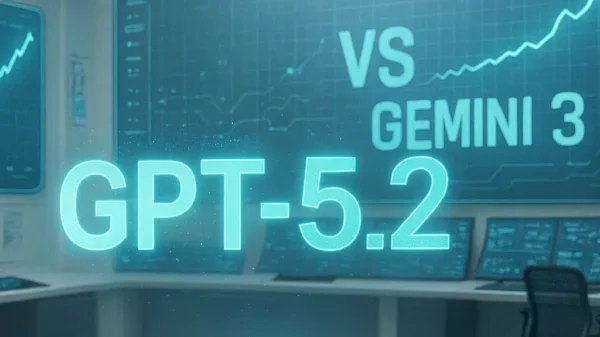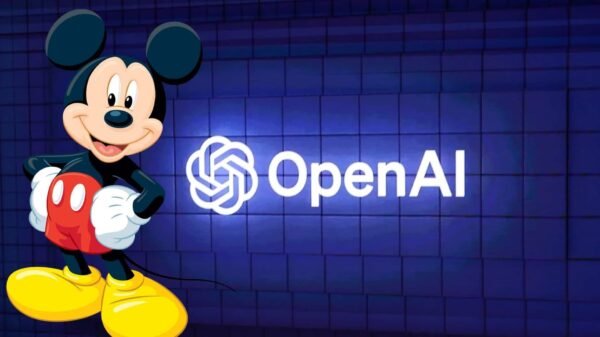A Survey of the Artificial Intelligence Legislation in the Golden State
When it comes to the rules and regulations that govern AI, the progressive Golden State is setting the standard. The goal of the proposed law is to provide an all-encompassing framework for the ethical creation, implementation, and oversight of AI systems. The goal of California’s AI law is to promote the moral development of AI by establishing standards of openness, accountability, and justice, which are becoming increasingly important as AI influences the future of many different businesses. Nevertheless, there has been some debate over the legislation, with prominent figures like OpenAI voicing their concerns.
Regarding California’s AI Law, OpenAI’s Position
One of the leading AI research groups, OpenAI, has spoken out strongly against the proposed AI bill in California. Many important issues are at the heart of the company’s position, and these mirror wider industry worries about the possible consequences of stringent regulatory measures. Among these worries are:
The current version of the rule, according to OpenAI, could impose unduly strict constraints on AI developers, which would hinder innovation. The group is of the opinion that such regulations would cause artificial intelligence (AI) research to stall, which would be a major setback for the industry.
Operational Burdens: According to OpenAI, AI enterprises may face substantial operational burdens as a result of the proposed legal compliance requirements. The group has brought attention to the possibility of higher expenses and more bureaucratic red tape, which might have a disproportionate impact on smaller AI companies and startups.
Concerns Regarding the Law’s Effect on the U.S. Artificial Intelligence Industry’s Global Competitiveness: OpenAI shares these concerns. The group is concerned that California would lose its position as an AI industry leader if its restrictions are too stringent, causing developers to go elsewhere for more accommodating policies.
Justification of California’s AI Law
California politicians have stressed the importance of the proposed AI laws, even if OpenAI and other industry players are opposed to them. Here are the main goals of the law:
Ethical AI Development: The goal of the law is to set standards for the development and usage of AI systems. To avoid prejudice and discrimination, AI algorithms must be held to high standards of openness, equity, and responsibility.
The legislation’s stated goal is to safeguard citizens from any harm that may come from artificial intelligence systems. To protect people’s rights and make sure AI is utilized for the greater good, the legislation mandates that businesses reveal how they use AI in decision-making.
Building Public Confidence: Another goal of California’s AI bill is to increase public confidence in AI systems. To allay public fears and guarantee that AI is created in accordance with society’s ideals, the state has instituted stringent regulatory procedures.
Examining How the AI Law Will Affect Business
There is a larger conflict between technological progress and government oversight, and the dispute over California’s AI law is illustrative of this. There is a wide range of possible effects of the law on artificial intelligence businesses and the sector as a whole:
Increased compliance expenses for AI companies may result from the introduction of stringent regulatory regulations. Due to a lack of resources, smaller enterprises and startups may find these expenditures particularly burdensome.
Overly restrictive restrictions run the danger of limiting innovation, even when the legislation seeks to guarantee ethical AI research. Regulators should avoid stifling innovation in the artificial intelligence sector, which depends on quick testing and refinement.
Global AI Development Shift: If people think California’s AI law is too strict, AI development may move to places with fewer regulations. When businesses look for places to set up shop with less stringent regulations, the United States risks falling behind in the global AI race.
Possible Means of Reaching an Agreement
Potential compromises that strike a balance between innovation and regulation may be possible to answer the concerns voiced by OpenAI and other industry stakeholders:
Creating an adaptive regulatory framework that changes in tandem with advances in AI is one potential answer. Companies would be able to innovate within this framework while still meeting ethical standards since it could provide more leeway in compliance.
Alternatively, the AI sector might work together to establish standards for the technology. Policymakers might create standards that reflect the reality of AI development while assuring ethical behaviors by collaborating with industry leaders.
Possible Alternative: The AI law might be implemented in stages. Companies might ease into the new requirements with this method, easing operating difficulties in the short term while giving themselves time to make any required adjustments.
Final Thoughts on California’s Artificial Intelligence Regulation Agenda
The difficulty of controlling a technology that is always changing is highlighted by the continuing discussion surrounding California’s AI bill. It is impossible to disregard the necessity for ethical supervision in AI development, even the legitimate worries expressed by OpenAI regarding innovation and competitiveness. Legislators must strike a balance between fostering innovation and ensuring that AI technologies are created and used in a way that respects society’s values.

















































